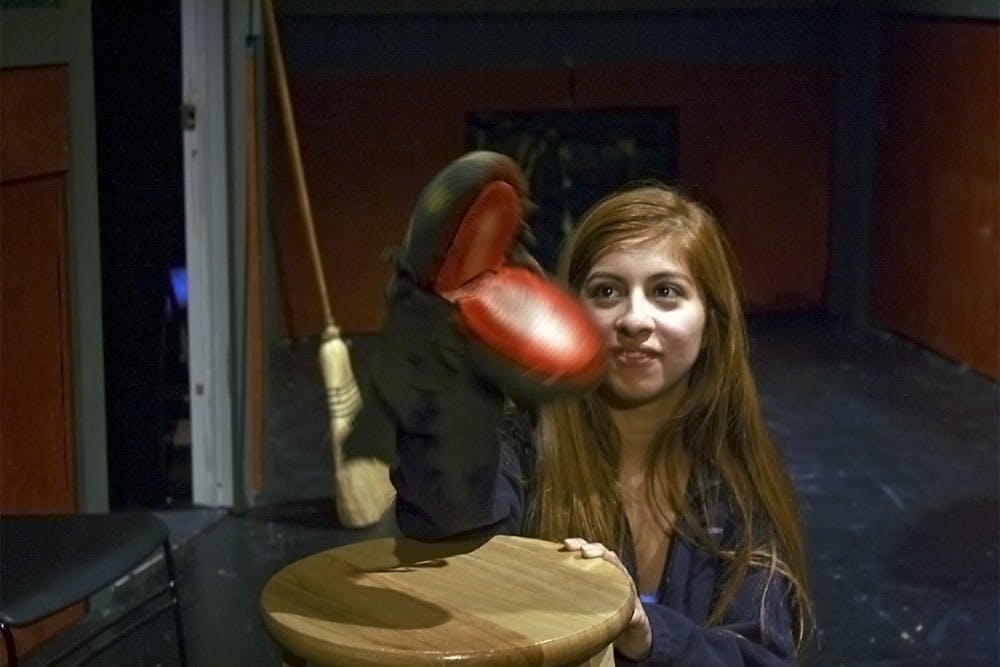Andrew Jones has been the technical designer for every Rogue Players production since the group formed in March of 2013. From Shakespeare’s bloodiest play, “Titus” to their most recent show “Beautiful Child,” he has used technical design to show that there is more that goes into a performance than just acting and directing.
The empty barroom of Chapel Hill Underground presented a challenge for Jones, who needed to transform the dark space into a stage for February’s “Beautiful Child.” Jones focused his designs around the audience’s experience, coordinating the lighting, visual projections and sound effects with the script. He also built a stage that extended into the audience to make viewers feel like they were part of the show.
“You have to make sure everything fits when running technical design,” he said. “Because how your costumes, set and props look are all affected differently by various lighting and seating viewpoints. You have to take everything into consideration if you want a really good product for the entire audience.”
Pauline Lamb, a UNC graduate student, has worked with Pauper Players and Company Carolina to do props, costume and makeup design, along with choreography and set building. She has worked on Pauper Players’ “The Rocky Horror Show,” “Sweeney Todd” and “Avenue Q” as well as Company Carolina’s upcoming production of “Little Shop of Horrors.”
“I think that some parts like properties, costumes and set design are not typically what people come to see when they go to a show,” said Lamb. “But a lot more work goes into it than people think.”
Lamb is currently the choreographer for “Little Shop of Horrors,” but said she also enjoys working with props, costume and makeup design.
“There is an element of design to my work, and like any artist anything I create I want to be good,” Lamb said.
“Even if a property only appears on stage for five seconds — like Gary Coleman’s colorful gun in ‘Avenue Q’ — that doesn’t mean you can take a shortcut and use something store-bought. That’d just look out of place.”



